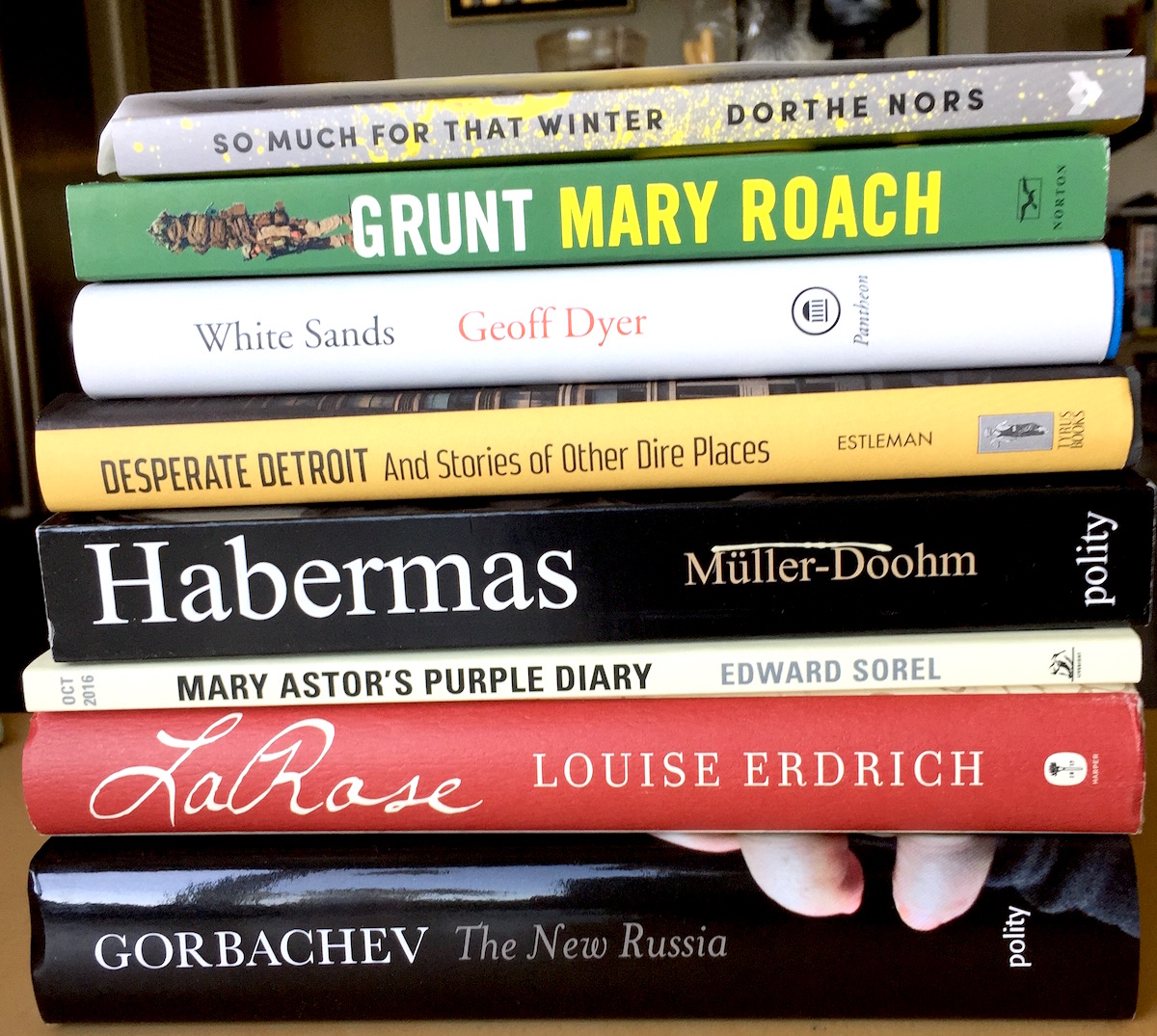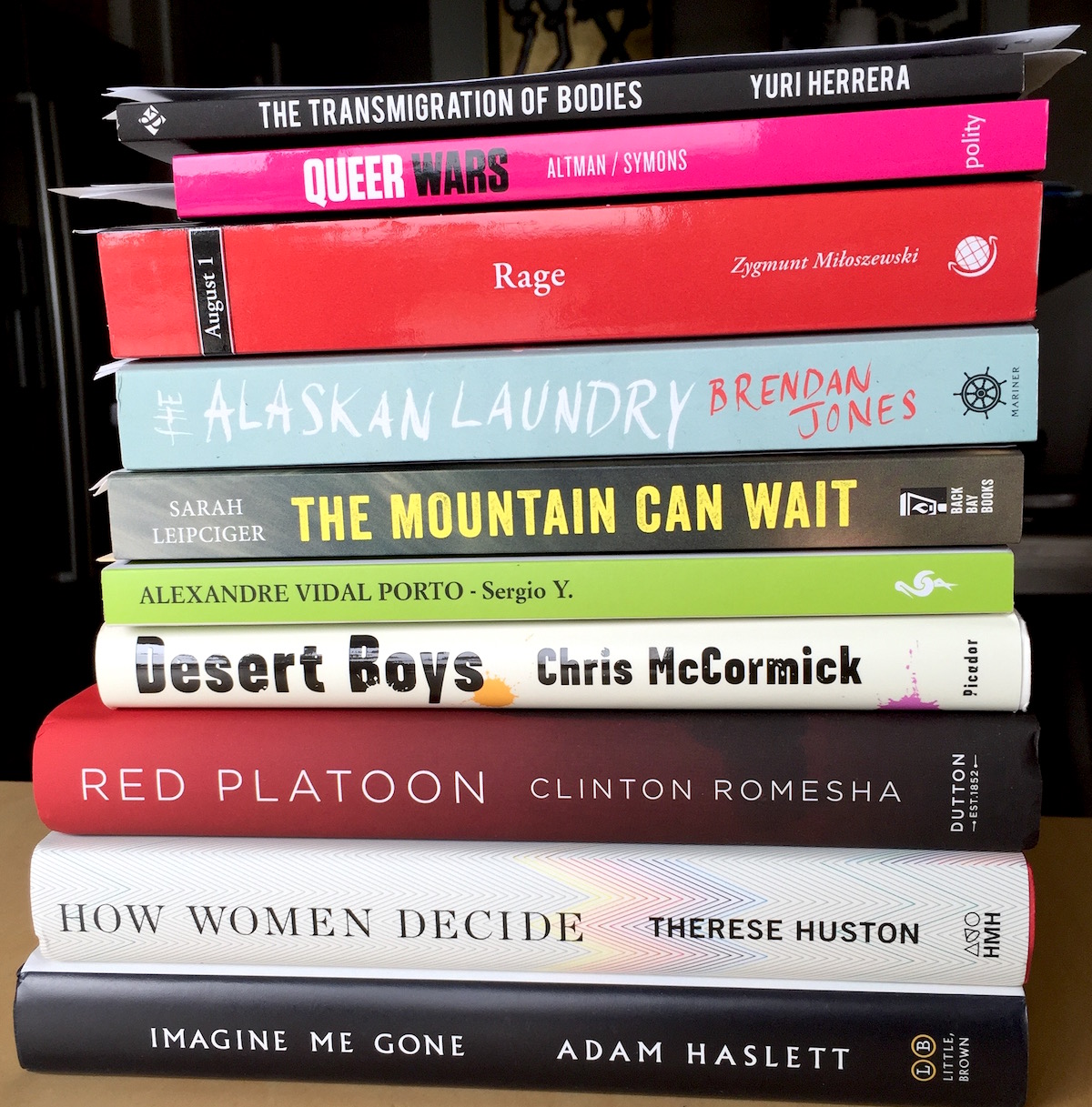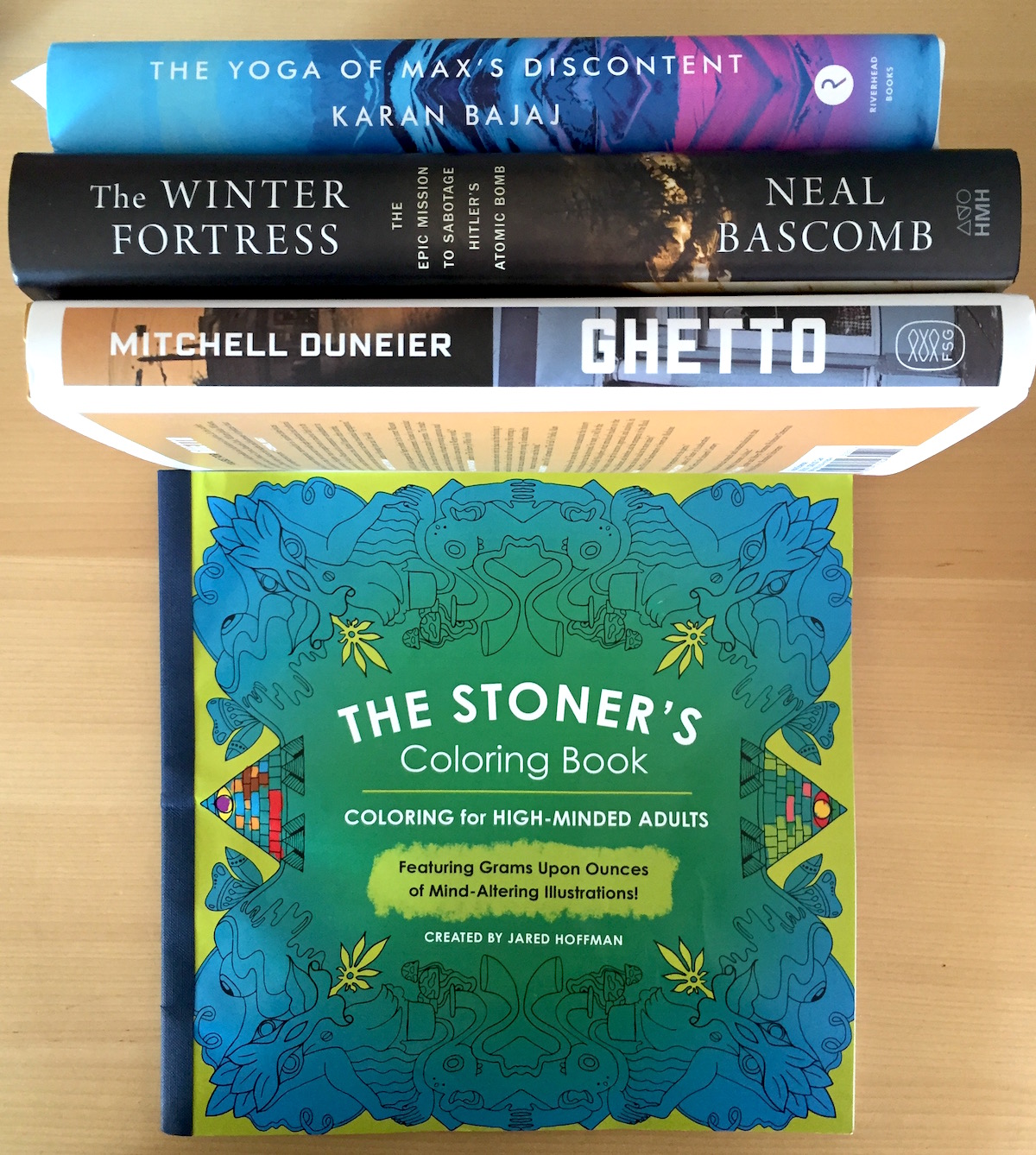Emerald City Comicon 2016 was a hit with fans and professionals, but...
Last week, I asked people to share their experience with this year's Emerald City Comicon. Over the last few days, I've heard from local cartoonists, from comics professionals, and from people who attended the show as fans. From those conversations, a pattern has emerged.
People are, so far as I can tell, pretty happy with Emerald City Comicon, especially as compared with other large comic book conventions. In fact, the more conventions that someone attends every year, the more likely they are to appreciate ECCC. Professionals say that even though it's clearly grown over the last few years, ECCC still has the feel of a small-town show that's not as overrun by Hollywood glitz and promotional glamor. A few fans complained about ECCC being overcrowded, but they mostly mirrored the professionals: compared to virtually any other big city's comic book convention, ECCC, they said, is a total delight.
The local cartoonists and vendors, though, said the show suffered from some behind-the-scenes organizational distress. People who have dealt with ECCC for multiple years say that the ECCC administration was generally non-communicative, which is a big change from conventions past. They didn't receive check-ins from show representatives until very late in the convention process, if at all, and they did not feel as though their complaints were addressed with the same care and consideration as past years. If a convention's true customers are the vendors, many of the vendors we talked with felt as though ECCC's customer service slipped from the exceptional level of care and consideration that they enjoyed in years past to something a little more aloof and disconnected this year.
Still, most of the vendors who complained to us had their most profitable ECCC yet, which suggests that perhaps the administration was just overwhelmed by their own show's success. Nobody seemed bitter about their convention experience; they just seemed slightly disappointed and wary about whether this experience would indicate a slip in quality in conventions yet to come.
On the whole, it seems that ReedPop's first full year in charge of ECCC landed in the solid B-to-B-minus range from vendors and in the A range from fans and professionals. Not a bad report card at all — though there's some room for improvement in the area of vendor relations for 2017.
Your Week in Readings: The best literary events from April 20th-26th
Wednesday April 20: David Schmader
It’s true that I worked with David Schmader for years at The Stranger, and it’s true that I’m proud to call him my friend. But there is a part of my brain — the part that tingles when it comes across a sufficiently beautiful sentence — that is still in awe of his writing ability. If you haven’t read his now-defunct Last Days column or seen his live Showgirls performance, you might think it’s hyperbole when I say that Schmader is the single funniest man I’ve ever met. But it’s true. And he’s not just funny because he blurts out observations that will strip the paint off walls with their truth—though he does that, too.
Schmader is funny because he’s a great writer who knows how to coax the maximum effect out of a sentence. Consider this line from his final Last Days column: “How many stories of babies being microwaved can readers withstand before being driven to sterilize themselves and throw away their microwaves?” Now bask in the fact that 99.7 percent of all professional writers would have stopped that sentence immediately after “sterilize themselves,” without thinking to add the gorgeous excess of throwing away the microwave at the end? It’s the perfect pratfall on which to finish a sentence that begins with a truly horrific image. Jokes like this don’t just happen automatically; they’re work, and Schmader is a master crafter of those microwave-tossing moments.
Happily, we now have an entire book of Schmader’s to keep in our homes. Weed: The User’s Guide is an encyclopedia of marijuana history, use, and culture for those questions you’re afraid to ask at your friendly neighborhood pot shop. (Is dabbing the same as hot knives? And, uh, while we’re at it, what the hell is hot knives?) Schmader says he intended to make the book a classy, useful everyday guide — more like one of those fancy leatherbound guides to scotch than the pun-festooned High Times-style romps you’ll find in the alternative culture section of your local bookstore. He succeeded. The book is hilarious and entertaining and thoroughly Schmader-y.
You now have multiple opportunities to see Schmader read from Weed: The User’s Guide onstage. On 4/20, he’s collaborating with the film collage geniuses at Collide-O-Scope to present some of the trippiest moments in movie history at the Egyptian Theater with special guests and gift giveaways. On Friday the 22nd, he’ll be presenting a big launch party for his book at Town Hall Seattle with guests including Dan Savage, KEXP DJ Riz, cartoonist Ellen Forney, poet Sarah Galvin, and former Seattle City Council member Nick Licata, with music from special guest Spekulation. And then on May 1st at Hugo House, Schmader’s presenting a a night of autobiographical readings to an audience that he hopes will show up (responsibly) high. That’s an impressive and diverse slate of public events taking place in a compact amount of time. Obviously, you should go to all three.
The Egyptian, 805 E Pine St,, 324-9996, http://www.siff.net/. $4.20. All ages. 7 p.m.
Thursday April 21: Elaine Harger
This reading from Which Side Are You On?: Seven Social Responsibility Debates in American Librarianship, 1990-2015 gives an insiders' view into how the American Library Association Council "tackles issues ranging from racism to government surveillance and climate change." University Book Store, 4326 University Way N.E., 634-3400, http://www2.bookstore.washington.edu/. Free. All ages. 7 p.m.
Friday April 22: Couth Buzzard Fundraiser

Saturday April 23: Simon Hanselmann
Tasmanian-born Seattle cartoonist Simon Hanselmann’s new book, Megg & Mogg In Amsterdam and Other Stories, is a comic about a witch and her cat who travel to Amsterdam to forget about their terrible lives. Originally published in Vice, these gorgeous-yet-repulsive comics are an absolute delight. Fantagraphics Bookstore & Gallery, 925 E. Pike St., 658-0110, http://fantagraphics.com/flog/bookstore. Free. All ages. 6 p.m.
Sunday April 24: When Someone Speaks
The Seattle Public Library has been killing it lately with an array of free writing classes at their neighborhood branches. The latest is a workshop on how to write dialogue, hosted by Seattle novelist Nancy Rawles. Whether you’re working on fiction, screenplays, or poems, Rawles can help you tighten that shit up. Seattle Public Library, Columbia Branch, 4721 Rainier Ave S., 386-1908, http://spl.org. Free. All ages. 3 p.m.
Monday April 25: Chris Hedges
Progressive journalist Hedges comes to Seattle often, and every time he brings with him a brand-new project. His latest, Wages of Rebellion, is a collection of columns offering “an overview of historical revolts and revolutions,” in an attempt to examine what, exactly, it would take for a rebellion to break out in America. Campion Ballroom at Seattle University, 914 E Jefferson Street, 634-3400, http://ubookstore.com. $5. All ages. 7:30 p.m.
Tuesday April 26: An Evening with Hawthorne Books
Hawthorne Books is one of Portland’s great literary treasures—a publisher of beautiful books of quality literature. Today, they’re presenting two of their best authors (Sallie Tisdale and Seattle’s own Megan Kruse) at a reading/conversation. Maybe someone in the audience could convince the Hawthorne crew to move to Seattle? That’d be sweet. Hugo House, 1634 11th Ave, 322-7030, http://hugohouse.org. Free. All ages. 7 p.m.
A sprouting Cascadian canon
Published April 19, 2016, at 1:17pm
What does Northwest literature mean? Can it be defined in relation to what it is not? Or is there a common theme in literature from this corner of the world?
Poking at death with a long stick
Published April 19, 2016, at 12:00pm
Abigail Thomas does brave work looking at the things nobody wants to look at. But why should the living want to read writing about death and loss?
Seattle shows up for the 2016 Eisner Award nominations
The 2016 Eisner Award nominations have been announced — the Eisners are basically the Oscars of comic books — and Seattle is well-represented this year. Fantagraphics Books is the most-nominated company of the year, with a whopping 17 nods. (One of Fantagraphics' most-nominated titles is The Eternaut, which I reviewed here at the Seattle Review of Books back in December.)
Other Seattle-area nominees include The Oatmeal's Matthew Inman, who was nominated for his strip "It's Going to Be Okay," and G. Willow Wilson, who was nominated for Best Writer for her work on Ms. Marvel. Other Eisner nominees that have been reviewed by the staff of Seattle Review of Books includes:
- Kaijumax, a series about giant monsters imprisoned on an island.
- The wonderful new series Paper Girls by Brian K. Vaughan and Cliff Chiang.
- Giant Days, a comedy series from Boom! about young women in college.
- Nimona, a fantasy comic by Noelle Stevenson.
- And The Thrilling Adventures of Lovelace and Babbage, by Sydney Padua.
Congratulations to all the nominees, and here's to Seattle making a strong showing as the great comics town we all know it to be. It's great to hear, too, that this is a record-breaking year for women at the Eisners.
The Quick
Taking my knife to the sharpener
I had to ask my brother
how do I take a knife
to the sharpener
one chance not to ruin
the flesh of this tuna I wanted
to separate the head
and dissolve the eye into
powder on my tongue I said
something about a fire worried
about dying in a fire in this club
with these people she said
“Where I come from that isn’t funny”
meaning Rhode Island
but we were in a rented house
on the Oregon Coast
my teeth coated in the dark
with anti-fungal ointment
the label warned CALL
POISON CONTROL and I
did I was redirected
to the nearest call center
the operator asked
where I was in Maine
outside the Pacific recycled
its emergency she said
“Be calm, hon, you’re not
even the first one today
if you die today
it won’t be from this”
was her promise
breaking over a marsh
where cranes showed off
standing on one leg to touch
their toes or talons or whatever
a man walked by reeking
of gasoline and as he passed
the gasoline stayed
a woman stepped backwards
from her porch seeking
a stable place to lean the ladder
she climbed swinging
one leg over the gutter
to disappear
think of it this way:
throughout history the horse
has been an emblem of speed
even on occasion an emblem
of flight and to travel
with any quickness at all
meant trust in an animal
velocity which always arrives
with its cousin
a vision of sudden death
though when it comes to that
all anyone will talk about is the bees.
Hugo House has published a (PDF) Frequently Asked Questions sheet explaining what their last month of operations in the Capitol Hill building will be like. There will be a large party on May 7th in which people will be invited to write on the walls of the House, and there will be a Literary Series event on the 20th — the theme is "The Writing on the Wall," cleverly enough — that is slated to be the final event. If you'd like to learn about what the Hugo House will look like on First Hill, please check out the FAQ. They're doing a good job of being very transparent about this.
The perfect mind-meld
Imagine your mind connected with others in such an intimate, seamless way that you became one person with many bodies. This is the basis of sponsor Steve Toutonghi's exciting new Science Fiction thriller Join. We've got the first chapter on our sponsor's page, and there's no way we're gonna stop reading there — and we bet you'll be just like us.
Steve is throwing a launch party this Thursday, April 21st at the Queen Anne Book Company. Come by for a reading, conversation, and snacks. Hope to see you there!
If you're a small publisher, writer, poet, or foundation that is looking to back our work, and advertise your own in an inexpensive and expressive way, take a look at our open dates. We'd love to talk to you about opportunities to sponsor us. It's our way of making internet advertising something to look forward to.
2016 Pulitzer Prizes announced
The 2016 Pulitzer Prizes are being announced right now. Kathryn Schulz won in the Feature Writing category for her harrowing piece on earthquakes in the Northwest.
The 2016 Pulitzer Prize for Feature Writing goes to... @kathrynschulz #Pulitzer100 pic.twitter.com/RC6orD5FPB
— The Pulitzer Prizes (@PulitzerPrize) April 18, 2016
Viet Thanh Nguyen won the fiction prize for his novel The Sympathizer.
The 2016 Pulitzer Prize for Fiction goes to... @viet_t_nguyen #Pulitzer100 pic.twitter.com/BG20eDoIOz
— The Pulitzer Prizes (@PulitzerPrize) April 18, 2016
Joby Warrick won for his non-fiction book Black Flags: The Rise of ISIS.
The 2016 Pulitzer Prize for Nonfiction goes to... @JobyWarrick #Pulitzer100 pic.twitter.com/Lnl5sTkqi0
— The Pulitzer Prizes (@PulitzerPrize) April 18, 2016
And Peter Balakian won for his poetry collection Ozone Journal.
The 2016 Pulitzer Prize for Poetry goes to... Peter Balakian #Pulitzer100 pic.twitter.com/2SfaqBsk8h
— The Pulitzer Prizes (@PulitzerPrize) April 18, 2016
Of course, there are many other winners (Lin-Manuel Miranda won in drama for Hamilton, obviously) and you can find them all on the Pulitzer website.
How to Celebrate a Calendrical Coincidence
Published April 18, 2016, at 12:00pm
Has anybody seen our reviewer Ivan Schneider? All we have is a battered, marked-up version of a book about Cervantes and Shakespeare, and this...well, I guess you could call it a "review".
The many voices that make up Open Books
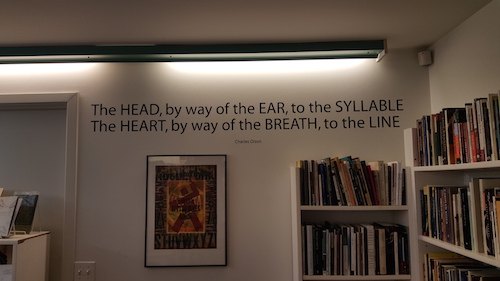
Of course, there’s more to a bookstore than readings. As John Marshall reflects on his time with Open Books, he’s been thinking about how much he’s learned from his customers. “I have been educated in so many directions by articulate folks possessing a vast array of aesthetics,” he says. He learns about poets and events from customers all the time, and all those many voices have helped make Open Books a two-decade conversation, with the kind of “crackling moments of wit,” he says, “that make life glow.”
Over most of Open Books’ lifetime, it has been a two-person shop, with responsibilities shared between Marshall and his wife, poet Christine Deavel. About a year ago, Deavel took a non-bookstore day job, though of course the store shares half her DNA. Marshall worries that anything he has to say about Deavel “will sound too gushy,” but he’s eternally grateful to her for her companionship and partnership in running Open Books. “She's a brilliant, insightful thinker about poetry and art, a terrific writer, and has the quickest wit I have ever been around. That she trusts me to be an audience for her wit is a grand gift,” he says.
A married couple running a poetry bookshop with a staff of two couldn’t have been all fun and games, could it? “Many times over the years people have confided in me that they couldn't imagine working with their spouse,” Marshall says. “I so lucked out. Even our rare fights,” he insists, “ended in love and comedy.”
As his time at the helm of the store draws to a close, Marshall admits to a “perhaps west-coast hippy thing.” He says he’s “found myself at times feeling a palpable character that is the store. “This happens when I'm alone, usually after closing. Once in awhile I speak to the store; thank it.” Those moments, he says, remind him that “the books, the poets, the customers, me, we're all transient” in the history of “the animal that is the store.” Now that it looks like Open Books will continue without him, he looks forward to seeing how the animal will adapt and grow.
So what will Marshall do when he retires? “I love dogs,” he says. “I grew up with dogs.” He hasn’t owned a dog in almost a decade, so he’s looking forward to volunteering at PAWS, to “go and play with dogs a couple hours every week.” Also, the experience of owning a bookshop is surprisingly not conducive to a rich reading life and so “I would love to read. I look forward to being able to read for two hours straight.” He’s “also hoping to write, and to see if I can.”
When I point out that Marshall is a published poet, so he’s already proven that he can write, he demurs. “Yeah, but you’re not a writer until you write. Writing happens or it doesn’t. You can’t point to something you did years ago and claim you’re still a writer.” With the luxury of time, and without all the conversation of the store thrumming around him every day, he looks forward to the silence of a white page, and learning how to write poetry again.
Adam Liptak at the New York Times says the "Supreme Court’s brief order left in place an appeals court decision that [Google's scanning of millions of books was] a “fair use” of the authors’ work, ending a legal saga that had lasted more than a decade."
The Sunday Post for April 17, 2016
'I Don't Know Whether to Kiss You or Spank You': A Half Century of Fear of an Unspanked Woman
Yet another longform piece on the infantalization of women due to the patriarchy as represented by media expressions of spanking as punishment (but not sexual pleasure). Jeez. Seems like we're getting ten of these a week, these days. Andrew Heisel takes us well-in-hand with this one, from Jezebel.
In early 1946, a woman from Carmel, California wrote the Hollywood fan magazine Screenland to say how much she had enjoyed the recent Christmas release Frontier Gal — not just for its lovely performers and dazzling Technicolor vistas, but for saving her marriage by teaching her husband to spank her.
After he’d returned from the war, she’d struggled to warm up to him again, she wrote, which caused a problem—and here was the solution. “In desperation, after seeing the show, he tried little Beverly’s philosophy,” wrote Mrs. J.B.M. “Daddies spank mamas because they love them. While this old-fashioned approach probably wouldn’t work in all cases, it did for us, and I would appreciate an opportunity to publicly thank Universal and Frontier Gal.”
How an internet mapping glitch turned a random Kansas farm into a digital hell
Kashmir Hill has been following this story for some time, and this installment on her investigations is the craziest yet. Innocent, and bewildered, people getting blamed fro everything under the sun, thanks to a GPS anomaly, and choice.
For the last decade, Taylor and her renters have been visited by all kinds of mysterious trouble. They’ve been accused of being identity thieves, spammers, scammers and fraudsters. They’ve gotten visited by FBI agents, federal marshals, IRS collectors, ambulances searching for suicidal veterans, and police officers searching for runaway children. They’ve found people scrounging around in their barn. The renters have been doxxed, their names and addresses posted on the internet by vigilantes. Once, someone left a broken toilet in the driveway as a strange, indefinite threat.
All in all, the residents of the Taylor property have been treated like criminals for a decade. And until I called them this week, they had no idea why.
The dark side of Guardian comments
There are some people who still believe in internet comments. There are people who think that they are redeemable, and there are people who think that they are working. But there are many who think comments aren't worth the trouble anymore (notice the lack of them here, for example). The Guardian goes in deep about the dark side of comments.
Although the majority of our regular opinion writers are white men, we found that those who experienced the highest levels of abuse and dismissive trolling were not. The 10 regular writers who got the most abuse were eight women (four white and four non-white) and two black men. Two of the women and one of the men were gay. And of the eight women in the “top 10”, one was Muslim and one Jewish.
And the 10 regular writers who got the least abuse? All men.
Is empty nose syndrome real? And if not why are people killing themselves over it?
Joel Oliphint reporting for Buzzfeed on a strange side-effect from a common nasal surgery, and the dire consequences for those suffering from it.
During his ear, nose, and throat residency at the Cleveland Clinic, Dr. Steven Houser shadowed his attending physician during nasal surgeries and sometimes handled initial consultations with patients during clinic visits. One day toward the end of his residency in the late ’90s, Houser examined the chart of a middle-aged woman who was complaining of nasal blockage, congestion, and difficulty breathing. The attending doctor had operated on her turbinates years earlier. She’d had plenty of time to heal, so Houser assumed the patient must have hit her nose or maybe developed a polyp. But when he examined her, he was surprised to see that her nose wasn’t blocked at all. (“You could drive a truck through there,” Houser says.) Her septum was straight. There were no holes or other oddities, but her turbinates — those tubular, bony structures inside the nose — were significantly reduced from the surgery. The woman told Houser that for some reason, she could breathe easier when she had a cold.
Houser was baffled. How could this woman have trouble breathing when her nose was wide open? And why would a cold make her feel less blocked? He described the situation to his attending physician, who then went into the room without Houser. After the appointment, the attending physician hemmed and hawed and never provided a good explanation. He told Houser not to worry about it.
Losswords. A game of literary portions. - Kickstarter Fund Project #15
Every week, the Seattle Review of Books backs a Kickstarter, and writes up why we picked that particular project. Read more about the project here. Suggest a project by writing to kickstarter at this domain, or by using our contact form.
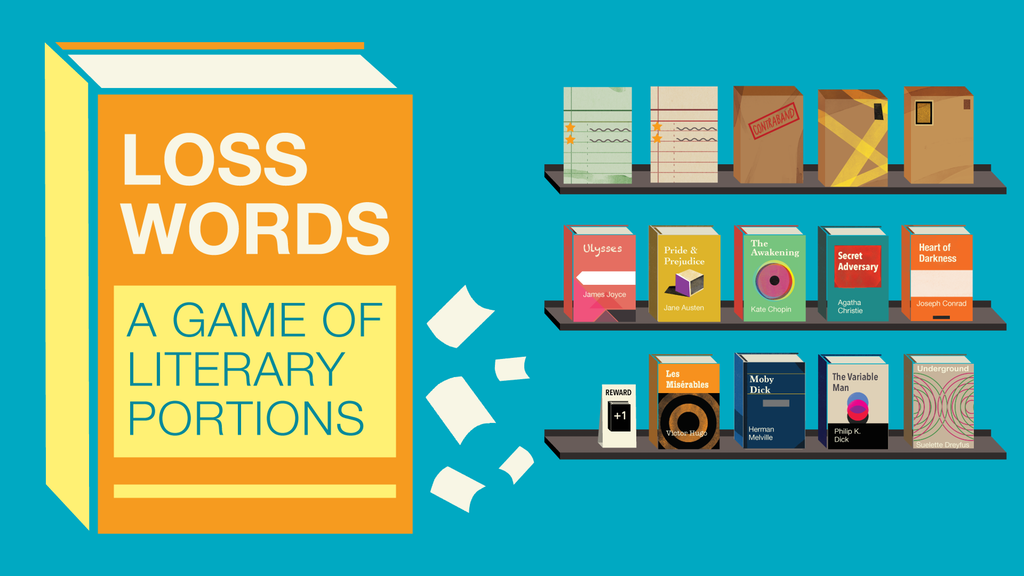
What's the project this week?
Losswords. A game of literary portions. We've put $20 in as a non-reward backer
Who is the Creator?
What do they have to say about the project?
The most fun you've ever had with Moby Dick, Alice in Wonderland, and Pride and Prejudice.!
What caught your eye?
What!? A game!?
I like word games and games with book themes, and this one looks great. You take a book that is (hopefully) in the public domain and use that text to find words inside of other words. It's part Humument and part word search, and will defiintely appeal to people who love anagrams and word puzzles.
Why should I back it?
More word games! You can get a copy of the game for $10, which, for an iPhone game is not cheap, but you get your name in the app, and look at it this way: if the game doesn't get funded, you'll never get to play it. This one looks awfully fun, and the people making it have the experience making games (they made a fun tabletop card game called Metagame that's kind of 6-games-in-one — I played it at last year's XOXO Festival.)
How's the project doing?
They're 91% funded with 26 days to go, so it looks like they'll make it!
Do they have a video?
Kickstarter Fund Stats
- Projects backed: 15
- Funds pledged: $300
- Funds collected: $240
- Unsuccessful pledges: 0
- Fund balance: $740
Danielle Dutton’s Paper Bodies
I thought I might go nuts if I read another article about how a woman writer balances her art and family commitments, but Danielle Dutton’s ability to balance multiple projects verges on superhuman. So I had to ask.
Dutton is the founder and publisher of Dorothy, a Publishing Project; a tenure-track professor; author of two novels and a collection of short stories as well as a doting mother with the “best kid ever.” Any of those things taken individually would be enough to keep most people busy, but Dutton seems energized by all of it.
“I’m a Libra, so I think about balance a lot,” she said when she met me for breakfast last week. “But not everything can have my attention all the time. Balance is being able to shift.”
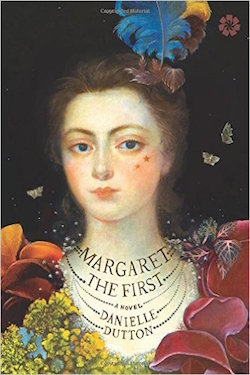
The novel is an exploration of the psyche of an incredibly creative but somewhat suppressed woman. Dutton inhabits Cavendish and gives her an authentic voice. “Hadn’t I thoughts, after all? A mind of my own? It cannot be infamy, I reasoned, to run or seek after glory, to love perfection, desire praise,” she writes in Cavendish’s voice.
Both Dutton and the subject of her novel are women of ambition with unprecedented successes for their time. Cavendish, the historical figure fictionalized in Dutton’s novel, was an aristocratic woman in the 17th century who never bore children, instead devoting herself to writing some of the earliest utopian science fiction. She became the first woman to be allowed entry into the Royal Society of London, an exclusive club of science and philosophers founded by King Charles.
Dutton has built Dorothy, a Publishing Project into a sustainable independent publishing house in an industry dominated by five publishing conglomerates based out of New York. She has also launched her own work — also on a small press — to wide critical acclaim, recently earning two positive reviews in The New York Times.
In the 1600s, it was rare for a woman to be taken seriously as a member of the intellectual elite. Now, it is incredibly unusual for small press books to gain the level of cultural awareness enjoyed by some of Dorothy’s titles and Dutton’s own work.
In 2014, Dorothy published The Wallcreeper by Nell Zink, which was named one of the 100 notable books of the year by The New York Times.
“We had this Jonathan Franzen blurb on the cover, which was kind of curious coming from a feminist micropress,” she said, “And of course we thought the book was amazing, bizarre and hilarious. It had the whole package.” The Wallcreeper had a larger print run than any other Dorothy title and went into two reprints in the first three months after its release. The book offered new financial resources to the press that was already doing well by micro-press standards. Dutton says Dorothy paid for itself within the first year.
“Dorothy sometimes takes over our house,” Dutton said. She and her husband, Marty, run the press out of their home, something that is not unusual for presses this size, but The Wallcreeper quickly outgrew their basement. The Duttons had to work with Small Press Distribution to keep a large quantity of the book on hand, something they do not usually do but was made necessary by the volume and speed of sales.
“We couldn’t have warehoused all the books at our house,” she said. “It was so strange. We’d had other books do well, but this one entered a cultural space that was way beyond Dorothy.”
Zink has since moved on to publish with the much larger Ecco, an imprint of Harper Collins, after being given a six figure advance. Dutton doesn’t have any qualms with that.
“It’s not like I sit down and think, ‘I want to launch someone’s career,’ I just want to publish books that I think are awesome and need to be published,” she said. It is starting to seem normal that her authors get agents after signing with Dorothy, which speaks volumes about Dutton’s taste as an editor.
Despite the success of Dorothy, Dutton and her husband do not plan to expand beyond publishing two titles a year. They want to still be able to give each title the attention it deserves to help shape the work. Now that her book tour is over, Dutton is looking for the next thing to obsess over and write about. Right now, she’s relishing in reading Angela Thurkell, a popular British author from the 1930s.
“I quite like messy writing,” she says. “I’m always looking for some kind of freedom; it’s something I can feel as a reader.” For Dutton, fascination is her freedom and it can be deeply felt in Margaret the First.
Late in Cavendish’s life, a crate containing the sole copies of most of her writings went missing while she was moving across Europe. She had no children and felt that these works — what she called her “paper bodies” — were the only piece of her that would be left when she died. Eventually, the crate made it back to her. Dutton, however, doesn’t have to worry about her work being erased from time.
There's something about Mary
Published April 15, 2016, at 11:30am
Two reviewers discuss why they're having such a hard time reviewing Chester Brown's latest book of Bible scholarship.
The Help Desk: A griever's library
Every Friday, Cienna Madrid offers solutions to life’s most vexing literary problems. Do you need a book recommendation to send your worst cousin on her birthday? Is it okay to read erotica on public transit? Cienna can help. Send your questions to advice@seattlereviewofbooks.com.
Dear Cienna,
My husband died. It was a few years ago, so the shock is over and I'm used to the idea of living my life on my own — I keep busy and have lots of friends and hobbies.
But his library, I just can't face. He was a scholar, and his discipline was very narrow, so it's probably one of the best libraries on his subject in the world, some 400 volumes collected over his 50-year professional career.
A few of his colleagues have dropped hints, and I know I could sell the whole collection, or donate to a library (I've gotten nice sympathy notes from his undergraduate and graduate alma mater, and also the University where he spent his career).
But Cienna — this seems more him than anything else. More than the smell on his old sweater, or the memories. This is where he invested himself, what he truly loved. How can I just let it go?
And yet, how can I keep it? It's selfish for a single woman to keep such a resource hidden away. I go and dust them every few months, but I never read. What should I do?
Broken in Bellingham
Dear Broken,
You can’t rush grief. When my grandmother passed away, the chair she died in remained in our living room for seven years before we finally burned it. Conversely, when my dad died, I left his ashes in a dog crate in the back of my Subaru because I didn’t want him in my house or fucking up the upholstery in my car. I’m sure some people found the former display creepy and the latter callous; fortunately, most people are aware that telling another individual they’re grieving wrong pegs them lower than a snake’s butt in the animal kingdom of assholes.
It’s not selfish to want to preserve and cherish your husband’s life’s work. There’s nothing wrong with keeping his library for a few years or the rest of your life. If his colleagues would like to use it, and you feel comfortable giving them access to your house, you can work out a case-by-case agreement to let them visit his library in your home. If that doesn’t appeal to you right now, give yourself permission to leave it alone and maybe revisit the question again in a few years.
And if his colleagues are bold enough to continue to drop hints about the future of his collection, just politely mention you’ve been having very vivid dreams about burning their houses to the ground, house pets and all. I’ve found this is a great way to stop unwanted conversations in their tracks.
Kisses,
Cienna
There are poetry events all over Seattle for National Poetry Month, but on Sunday April 17th, there's a great reason to take a trip out to Redmond. It's called Open Studio, and it features a bunch of great people:
Celebrate National Poetry Month through song, contemporary forays into poetic performance and collaborations between sound artists and writers in this event. Curated by Redmond Poet Laureate Shin Yu Pai.
And here are the performers:
- Jessika Kenney, vocalist/composer, accompanied by Behruz Alavi on Persian ney
- Sierra Nelson & Rachel Kessler (aka Vis-à-Vis Society), performance artists
- Alan Chong Lau and Susie Kozawa, poet/visual artist and sound artist/composer
- Srivani Jade (Srivani Jade Music), singer
- Levi Fuller (Levi Fuller & the Library), musician/producer
- Michael Dylan Welch, poet
We're big fans of Pai, the Vis-à-Vis Society, and Fuller in particular. This would make for a great Poetry Month pilgrimage.
